Ag/Climate Blog
Climate Change, Drought and Agriculture Podcast
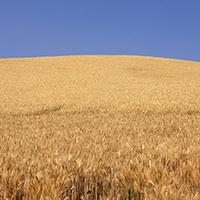
Intercropping
As part of her summer internship with the REACCH project at Oregon State University, Savannah Kisling developed an informative podcast about climate change, drought and their impacts on agriculture. For her project Savannah interviewed Dr. John Abatzoglou, Climate Scientist from the University of Idaho who discusses what it means to have a drought and Dr. Kristy Borrelli, REACCH Extension... more
Observations of Aphid Dynamics Provide Clues to Risks and Benefits under Climate Change
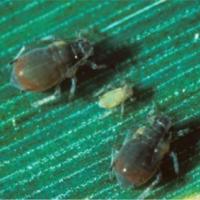
Bird cherry-oat aphid (photo by D. Schotzko)
Growers can anticipate future aphid-related risks by understanding current baselines and trends. – Sanford Eigenbrode
Possibly one of the most concerning factors associated with climate change is the uncertainty of its impacts on agricultural pests. Climate change can directly influence ranges and severity of pests and indirectly complicate the relationships among climate... more
REACCH Education Workshop
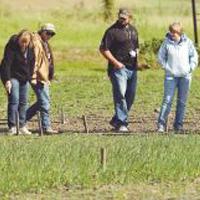
Teacher workshop 2012
MOSCOW, ID: About 20 high school teachers and community college instructors from across Idaho and Washington are participating in the Northwest Climate Education Resources workshop this week at the University of Idaho.
The workshop is a collaboration of NASA, U.S. Department of Agriculture and National Science Foundation projects that aim to engage teachers in climate change and... more
New aphid found on wheat in North America and the PNW!
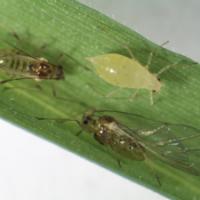
Until now, Metopolophium festucae cerealium has not been reported on cereal crops in the US, but it is a pest of wheat and other cereal crops in the UK. Studies suggest that this aphid prefers wheat to other grasses. In June and July 2011, a survey of aphids in wheat was initiated in Washington, Oregon and Idaho. M. f. cerealium was found in nearly every sample collected from... more
REACCH scientists contribute to National Climate Assessment

REACCH scientists highlighted Northwest agriculture perspectives in the National Climate Assessment. Sanford Eigenbrode, project director and University of Idaho professor, and Susan Capalbo and Philip Mote of Oregon State University contributed to the report. The White House released this document Tuesday. A 1990 law stipulates the climate assessments be published every... more
The difference between weather and climate

If you were asked the question “What is the difference between weather and climate?” would you know how to answer it? Given the dependence of agriculture on weather and climate, it is important to clearly define both terms. Von Walden, professor specializing in meteorology and climatology, ... more
End-of-the-century climate and wheat production

Atmosphere composition affects wheat below
"Climate change may increase wheat productivity in the Pacific Northwest." —Claudio Stöckle
Though it is difficult to know exactly how predicted climate variables will impact agricultural production, Claudio Stöckle, Professor in the... more
Climate and Economics
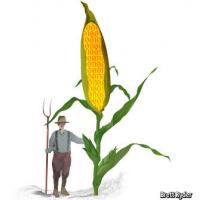
The Economist recently covered the relationships among climate change, agriculture, and big data in "Digital disruption on the farm."
... moreNew aphid damages wheat more than crops
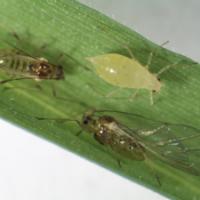
A new aphid has been found in North America! was pronounced in July 2013.
Precision Agriculture Offers Exciting Conservation Opportunities for Farmers
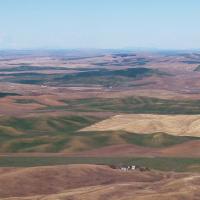
Palouse from Kamiak Butte —Roger Nelson
High-tech tools help us better understand natural and human-managed ecosystems. —Troy Magney
When I began working with REACCH last year, it was interesting that no matter where I went or who I spoke to, the topic of precision agriculture came up. Not only were researchers studying it but farmers were using it, professors were teaching it, regional businesses were selling... more
Around the Web: Producers respond to climate challenges
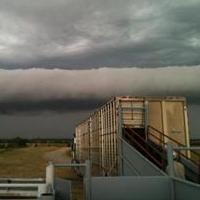
The Farm Journal recently covered the precautions some producers are taking for variable weather, especially extreme weather events, in "... more
Exploring Field Scale Variability with Remote Sensing and EMI Sensors
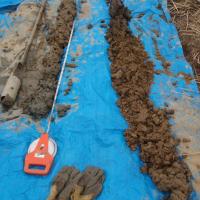
Soil Cores
Precision agriculture utilizes information technologies to modify land management practices in a site-specific manner as conditions change spatially and temporally for optimum profitability, sustainability, and protection of the environment.
Precision agriculture deals with 5 “R’s”:
- Right input
- Right amount
- Right place
- Right time
- Right... more
Cover Crops, Soil Conservation, and Prevented Planting Acres
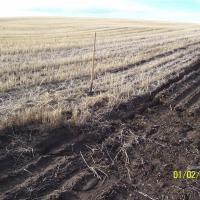
Each ton of soil eroded in the Pacific farm production region has a negative economic impact of $0.53. —David Steury
As many of you and your clients consider crop insurance purchases before the sales closing date, here is some REACCH research, conducted by Professor of Agricultural Economics Kate Painter and her 2013 University... more
Analyzing Regional Climate Models for the PNW
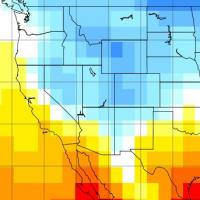
GCM model at 200km
Climate models are the most sophisticated tool we have to better our understanding of how our climate will change.
Climate models have proven their utility in accurately reproducing past, observed changes in our climate. They have also shown the ability to pick up on key physical and human influences on our climate, improving confidence in their accuracy.
The most widely... more
U.S. Northwest feels the heat

REACCH scientist John Abatzoglou explains why July and August were so hot.
Aside from a few locations in mid-latitudes, July and August are the warmest months of the year. However, the northwestern US experienced extraordinary warmth over the past 6-8 weeks with most locations 2-3 degrees C (3-5 F) above normal adding to the crescendo of the hottest time of the year.
Visit his blog... more
Strengths, Weaknesses, Opportunities, Threats (SWOT) Analysis of California’s Low Carbon Fuel Standard
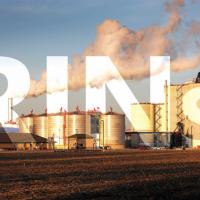
Renewable Identification Numbers
"This Low Carbon Fuel Standard has the ability to increase the use of renewable fuels with the 'first-of-its-kind' regulation. In order to work properly and efficiently, a cost containment strategy would have to be implemented. My internship with REACCH has led me to explore the history and future of renewable and fuel standards and markets, with the hopes of decreasing fossil fuel use."
... morePrecision Agriculture Resources for Farmers

REACCH Intern River Rafting Trip 2014 (Photo credit: Carolyn McCotter)
I had an amazing experience this summer! I had the chance to work as an undergraduate intern with REACCH Extension Specialist, Kristy Borrelli. Coming from the city of Chicago, I was in awe of the rolling hills in the Palouse but did not know much about grower practices, much less precision agriculture. Over the nine-week period, I researched precision agriculture equipment and practices... more
Drought and Cereal Pests Research
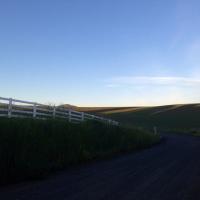
Palouse Ag System
If we go back in time twelve thousand years from the present, to a period marking the formation of the Puget Sound within the Pacific Northwest (PNW) region of North America, we see geo-climatic conditions drastically different from those predominating on Earth today. With one half of Earth's surface covered in ice, extensive glaciation drove massive landscape alteration and mass... more
Integrating Environmental Accounting into AgTools
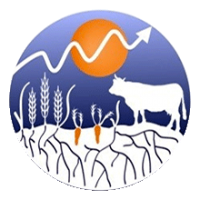
If you’re interested in climate and agriculture, continue reading articles at the blog aggregator, AgClimate.net
The AgToolsTM software uses a suite of programs to evaluate the profitability and feasibility at the individual farm level of different management decisions and cropping systems. Integrating environmental accounting into AgToolsTM aims to take into consideration the economic and environmental impacts of agricultural practices at the... more
How climate change affects ecological interactions
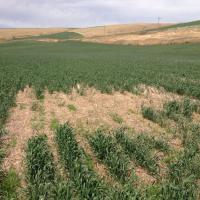
Figure 1. Effects of wireworms on wheat.
Agriculture has been relied upon as a food source for humans for thousands of years. For much of that time, wheat has been one of the most important crops that people have grown. Wheat, like most crops, is reliant upon certain quantities of water to grow properly.
According to climate change projections for the Pacific Northwest, water availability will change drastically both in timing... more
Management Effects on Soil Organic Carbon Pools
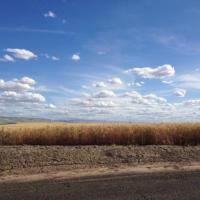
Everything is built on soil; the food we eat, the air we breathe, the water we drink, and the clothing we wear on our backs. Interactions in the soil between components like microbes, insects, water, plant roots, soil organic matter, minerals, and air make it more than just filth we scrape off our boots. Because of all of these interactions, soil has the ability to mitigate for or to... more
Obstacles in the Oilseed Biofuel Market
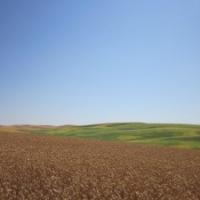
In a previous post, I explained that available evidence currently indicates nitrous oxide emissions may be fairly low in the inland Pacific Northwest, compared to other cropland agricultural systems in the U.S. and world. If ongoing research confirms these early results, then I suggested that efforts to... more

